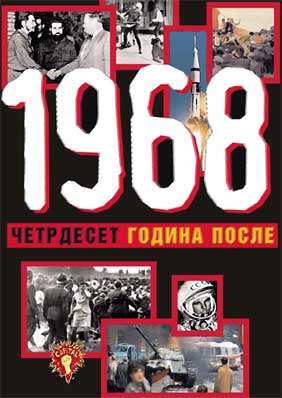Југословенско-румунски односи у данима совјетске интервенције у Чехословачкој 1968. године
Yugoslav-Romanian Relations in the Days of the Soviet
Intervention in Czechoslovakia in 1968
Author(s): Vladimir Lj. Cvetković
Subject(s): Diplomatic history, Political history, Post-War period (1950 - 1989), Cold-War History
Published by: Institut za noviju istoriju Srbije
Summary/Abstract: The crisis which started with the invasion of Czechoslovakia by Soviet, Polish, East-German Hungarian and Bulgarian troops on August 21. 1968, influenced Yugoslav-Romanian relations too. Although the Czechoslovak crisis was globally the „topic of the day” and left its mark on the overall international relations of those days, it seems it had special significance for Yugoslavia and Romania and their mutual relations. That significance laid above all in the fact that refusal to take part in the joint action of the countries of the Warsaw Pact (the member of which it was) in Czechoslovakia, was the point of greatest and most audacious divergence of Romania from the Soviet Union and other East European countries, members of the Warsaw Pact and the Comecon, which came about as the result of the process of gradual and cautious emancipation from the Soviet political and economic domination, that had been going on from mid-1959s. At the same time, the situation created by the Soviet intervention in Czechoslovakia in the period that immediately followed, with the atmosphere of increasingly strained relations of both countries with the Soviet Union and other socialist countries which lent support to the intervention in Czechoslovakia, brought the Yugoslav-Romanian relations to the peak of rapprochement, which was refl ected in frequent contacts on the highest, as well as on lower diplomatic levels. Thus the final result of Romania’s distancing from the Soviet Union, the Warsaw Pact and the Comecon, was at the same time the peak of rapprochement with the neighboring Yugoslavia. Therefore the Yugoslav-Romanian relations in the days after the Soviet intervention in Czechoslovakia had a double significance for Yugoslavia. On the level of bilateral relations, the crisis helped Tito during his talks with Ciauşescu in Vršac on August 24, 1968 to define, the framework of Yugoslavia’s future support for Romania’s „independent way”, limiting thus the „intimacy” of the Yugoslav-Romanian embrace. On the other hand, on the level of Yugoslav-Soviet relations, Tito’s influence on Romanians to ease tensions, made it possible for him to send the signal to the Soviets that, despite all differences and ideological divergence, Yugoslavia wasn’t willing to effectively support desires of a member of the Soviet bloc to leave Moscow’s fold.
Book: 1968 - четрдесет година после
- Page Range: 163-179
- Page Count: 17
- Publication Year: 2008
- Language: Serbian
- Content File-PDF

